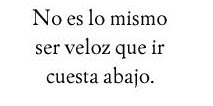The six Russian national security documents issued since Putin first became president in 2000 display a remarkable conceptual consistency.1 They argue that a polycentric world is emerging and shifting the balance of power from the West to the Asia-Pacific region.2The West is attempting to prevent this, according to Russia, and this will mean greater competition over values and less cooperation in combating global threats like migration, pandemics, global warming and resource scarcity....
Read More »Gordon M. Hahn — Implications of Pew Study on “Major Threat” Perceptions Around the Globe
Recent Pew research surveys conducted in 38 and 30 countries, respectively, across the globe suggest the following troubling trends for Washington: American hegemony is waning; Russian public diplomacy may be making some inroads in many countries, including some NATO countries, the world is increasingly split apart between the West (plus Japan) and all the rest, and the effectiveness of China’s ‘quiet rise’ economy- and trade-based foreign policy.… US soft power in decline.The major problem...
Read More »The Latin American Crisis
Downhill I have not written on the problems in the region for a while now (last stuff that is more comprehensive here in the talk at Keene, for example), in part, because the whole theme is a bit depressing (more recently the Honduras crisis, and the return of the right in Chile). As I have noted before, there is no doubt that the collapse of commodity prices has played a significant role in the downturn in the region, but it is also true that a lot of the problems are political in...
Read More » Heterodox
Heterodox

